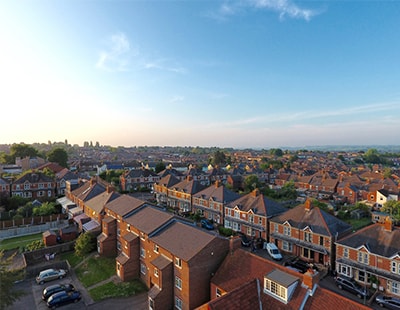The Halifax House Price Index said the slowdown was due to falling demand and lower mortgage activity.
Russell Galley, managing director for Halifax, said: “The housing market has begun to show signs of cooling.
“Mortgage activity has started to come down and, coupled with the inflationary pressures currently exerted on household budgets, it’s likely activity will start to slow.
“So, there is perhaps one green shoot for prospective purchasers; with overall buying demand down compared to last year, we may be past the peak sellers’ market.”
Commenting on the data, Sarah Coles, senior personal finance analyst for Hargreaves Lansdown said the balance of power between property buyers and sellers may be starting to shift, but purchasers may be too weak to take advantage of this opportunity.
She said: “Sellers have had all the power in the relationship for almost two years, because so many buyers flooded into the market and discovered there was almost nothing for sale. It has pushed prices skywards as bidding wars erupted around the UK. There’s still very little for sale, which has kept prices rising, but the balance has started to shift.
“Halifax has noted that property demand is down from this time last year. It’s one reason why the number of mortgage approvals dropped in April. Meanwhile, the number of sales being agreed and completed both fell in April.
“Unfortunately for buyers, despite the shift in the balance of power, they still have an enormous challenge if they want to buy.”
Coles said buyers are battling higher mortgage costs and rising inflation more widely.
Tom Bill, head of UK residential research at Knight Frank, said: “House prices have begun their gradual return to earth as the cost of living squeeze tightens, mortgage lenders withdraw their cheapest products and the supply of homes increases as owners sense prices are peaking.
“The trigger for this much-needed rebalancing between supply and demand appears to have been the Bank of England raising the base rate to 1% and the grim language it used to describe the economic outlook.
“While the brakes will be applied, the low rate of unemployment means the housing market shouldn’t screech to a halt and we expect single digit growth by the end of this year.”
Jeremy Leaf, north London estate agent and a former RICS residential chairman, added: “Although only reflecting evidence from Halifax customers, this historically reliable survey does confirm trends we are seeing on the ground.
“The cost of living crisis and successive interest rate rises are finally starting to affect the housing market. Prices are still rising but not as rapidly as they were a few months ago.
“However, a correction seems unlikely while stock remains so low, particularly of property in most demand i.e. three and four-bedroom family houses.”
This sentiment is backed up by the latest RICS data, with its Residential Market Survey for May showing 7% more surveyors reported a fall rather than rise in new buyer enquiries last month.
Some respondents put this down to buyers tightening their belts as the cost of living begins to have an effect.
The result brings to an end eight consecutive positive results for new buyer enquiries.
As such, the volume of agreed sales saw little change, with a flat picture reported.
New instructions to sell homes were also largely flat during May, and there seems to be little respite for lack of supply in the future, with respondents citing the weakest picture since December 2021 for new and requested market appraisals.
This suggests there is little prospect of more homes coming onto the market in the immediate future, RICS said.
Simon Rubinsohn, RICS chief economist, said: “The increase in the cost of mortgage finance alongside growing concerns about the economic outlook is unsurprisingly having an impact, albeit a relatively modest one at this point, on buyer activity in the sales market.
“Despite this, prices are viewed as likely to remain resilient into 2023. But as is often the case in these circumstances, the pressure is likely to felt more visibly in transaction levels which are seen as likely to slow as the year wears on.”



























Join the conversation
Be the first to comment (please use the comment box below)
Please login to comment